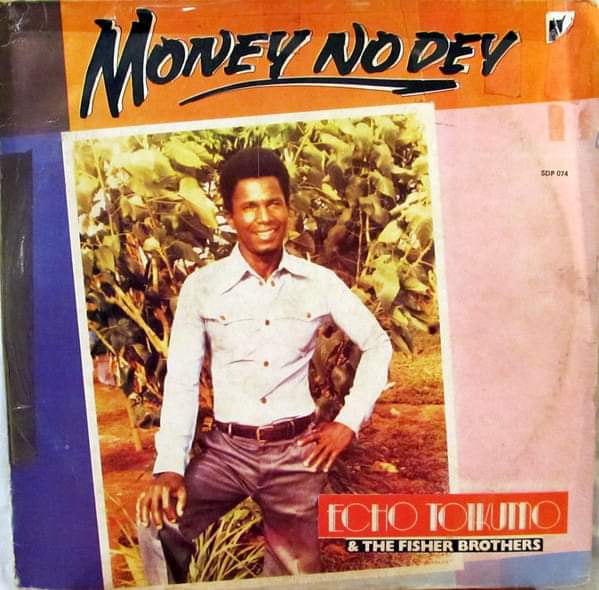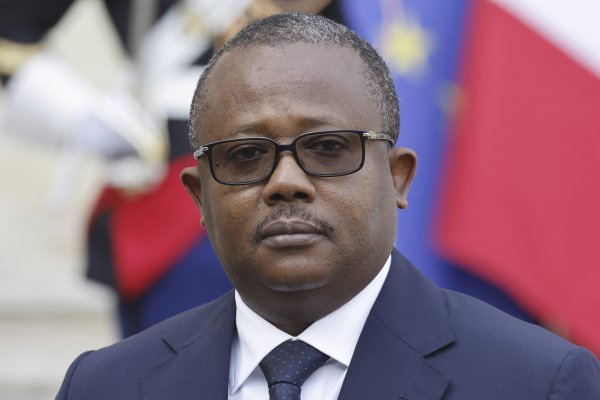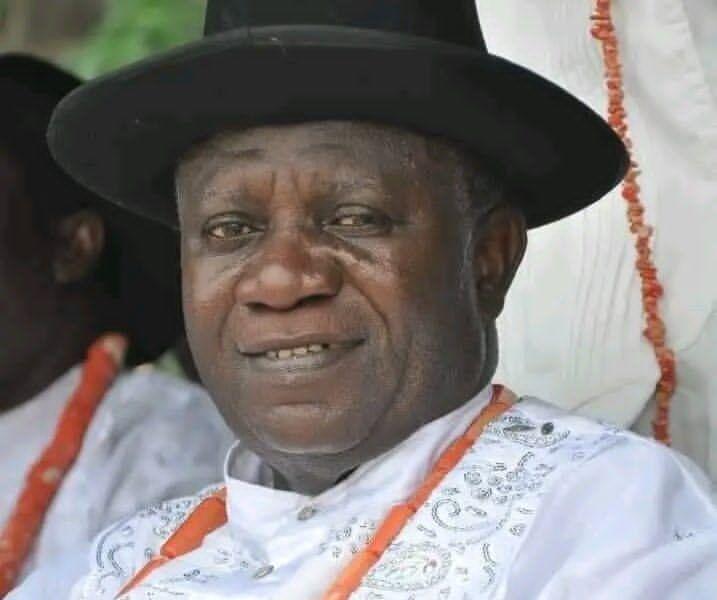THE AFRICAN ENTERTAINER: In Search of the Moral and Spiritual Compass By Abai Francis

In the African setting, before the advent of the modern day music genres of reggae, hip hop, jazz, pop, classical and other forms, the African music has always played the role of instilling moral and spiritual consciousness in its listeners. By this, it was traditionally used to steer society in the right path to avoid it from deviating from the accepted norms of what is right.
And so, asides the responsibility of entertaining an audience, one of the core duties of performing African traditional musicians / artists, is to use their songs as a compass to guide their listeners morally and spiritually in life. This is because by their public appeal, it is believed they wield certain influence on their fans, who view the messages contained in their songs as divinely inspired.
For instance, the below rhythms by Chief Barrister Smooth, an Ijaw traditional music artist who hails from Burutu Local Government Area of Delta State, posited the following rhythms in one of his songs titled 'Be Content': ”You get house, you still dey complain; how you wan do somebody wey nor get at all. You get motor, you still dey complain; how you wan do somebody wey nor get at all. You get children, you still dey complain; how you wan do somebody wey nor get at all. You get wife, you still dey complain; How you wan do somebody wey nor get at all... My brother be content oo, be content with what you have..." in an attempt to morally and spiritually alert his audience to shun the act of greed.
In the same vein, another popular Ijaw traditional entertainer, Chief Echo Toikumor (of blessed memory) and his Fisher Brothers Band, once sang: "O! My son, you should be ready, to lay good foundation, earlier the better. In the nearest future, you will be one of the leaders, so we pray, Amen!" while trying to alert the youths to be of good conduct and to work hard to become the future leaders that would uplift their families and country to the zenith.
There are other traditional artists too, such as Bright Chimezie, Sir Shina Peters, Oliver De Coque, King Robert Ebizimor, Dr. I.K.Belemu, Ayinla Kollington, King Sunny Ade, Victor Uwaifo, Osita Osadebe, Bongus Ikwue, Ebenezer Obey, I.K. Dairo, Lagbaja, Yinka Ayefele, and others, who used their music to stir the hearts of their audience to believe in a good cause.
And even as music began to metamorphose to include a large base or audience beyond cultural and ethnic leanings, the African artist did not lose sight of his/her moral responsibility. In that light, Nigerians will not forget the likes of Fela Anikulapo Kuti, Sunny Okosun, Felix Liberty, Rex Lawson, The Mandators, Prince Nico Mbarga, Christy Essein Igbokwe, Onyeka Onwenu, Ras Kimono, Orits Williki, Majek Fashek and others, who used their music to boost up the moral and spiritual consciousness of listeners by preaching against the ugly odds in society.
Even the legendary Jamaican Bob Marley and the Wailers, who claim an African heritage, used the reggae music to inspire listeners to be morally and spiritually conscious by speaking the truth in the midst of oppositions. Bob Marley practically used the reggae music to preach against apartheid and colonialism in the African continent as well as urging the unity of Africans to live as one.
At present, music has become enterprising, and the African music is not exempted. But while in the search of fortune and fame, the African music is gradually been taken over by the urban hip hop classic which is more appealing to the youths. Sadly, most African artists while birthing their own form of hip hop version known as Afro Hip Hop, have failed to live up to the standards set by their predecessors in the traditional scene despite the infusion of African traditional music with Afro Hip Hop.
And so, these days, the African urban music is now strictly for entertainment purpose and nothing more. Despite the misgivings in the society, the voice of the African artist that was once likened to playing the role of a prophet, has become silent, especially in a global age of the Internet when music has broken down listening barriers. Only a few are still speaking out against injustices in the society but their voices are constantly being drowned by the majority of those who strictly entertain and are, unfortunately, making more money and receiving more fame.
But at a time as this when the country is bedeviled by a lot of challenges, Nigerians need the likes of Bob Marley, Fela Anikulapo Kuti, amongst others, to replicate their acts by using music to confront the high state of immorality that has drowned every good sense of reasoning in the modern day society, especially in governance. Nigerians need to be awakened from their slumber to a moral and spiritual consciousness through entertainment especially as music has become more popular and widely accepted across geographical barriers. They need to use music as a weapon to agitate for good governance.
Unfortunately, the importation of certain music genres have so much influenced the African artist who try to present a foreign image in a local setting and also spreading foreign musical cultures that encourage certain ills in the society. But it is not too late for Nigerian artistes to rediscover their moral and spiritual compass by speaking up more than ever before against such negative influence, against corruption, bad governance, and other ills in society. For that is their natural duty as patriots and ambassadors of their country, to use what they know how to do best to instill moral and spiritual consciousness.
#mypublicdiscourse
Image: Echo Toikumor



